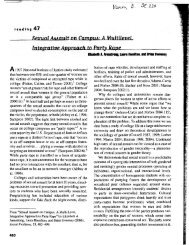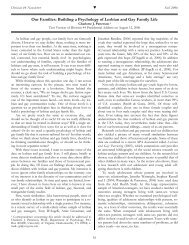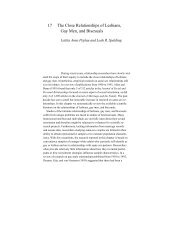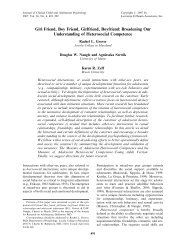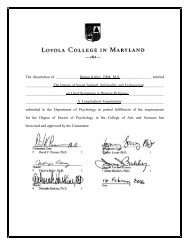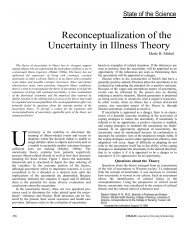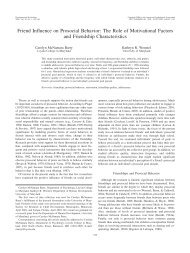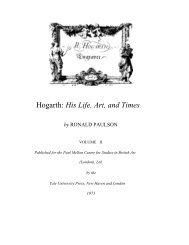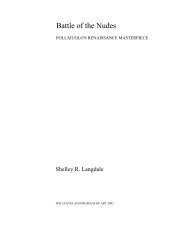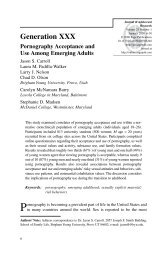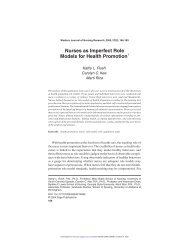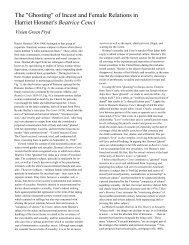The Social Explorer as Anthropologist: Victorian Travellers among ...
The Social Explorer as Anthropologist: Victorian Travellers among ...
The Social Explorer as Anthropologist: Victorian Travellers among ...
You also want an ePaper? Increase the reach of your titles
YUMPU automatically turns print PDFs into web optimized ePapers that Google loves.
12. Henry Mayhew, London Labour and the London Poor (London, 1851),<br />
I, iii.<br />
13. Mayhew, I, 1.<br />
14. See J.W. Burrow, Evolution and Society (Cambridge, England, 1970),<br />
pp. 98-99, 120-24.<br />
15. James Cowles Prichard, <strong>The</strong> Natural History of Man (London, 1843),<br />
p. 4.<br />
16. Burrow argues that this and other <strong>Victorian</strong> evolutionary theories<br />
avoided "the unple<strong>as</strong>antly relativist implications of a world in which<br />
many of the old certainties were disappearing" (p. 99). Mankind w<strong>as</strong><br />
not "everywhere the same," at le<strong>as</strong>t not at any given moment.<br />
17. Mayhew, I, 2.<br />
18. Mayhew, I, 23.<br />
19. Mayhew, I, 24.<br />
20. Mayhew, I, 43.<br />
21. Mayhew, I, 20.<br />
22. Mayhew, I, 43.<br />
23. Anne Humpherys, Travels into the Poor Man's Country: <strong>The</strong> Work of<br />
Henry Mayhew (Athens, Georgia, 1977), p. 71.<br />
24. Humpherys, pp. 71-72.<br />
25. Gertrude Himmelfarb, "<strong>The</strong> Culture of Poverty," in <strong>The</strong> <strong>Victorian</strong><br />
City, ed. H.J. Dyos and Michael Wolff (Boston, 1973), II, 719. Anne<br />
Humpherys concedes that Mayhew's <strong>as</strong>sertions about the "wandering<br />
tribes" do indeed "support Gertrude Himmelfarb's charge that May-<br />
hew contributed to the idea that the poor were a cl<strong>as</strong>s apart." She<br />
defends Mayhew, however, by saying that the general introductory<br />
section on street-life w<strong>as</strong> "less important than the rest of his work;<br />
it occupied only two pages out of all his volumes . . ." (Humpherys,<br />
p. 72). Rather than offering another interpretation of the p<strong>as</strong>sages<br />
in question, Humpherys simply minimizes their importance.<br />
26. Himmelfarb, p. 711.<br />
134



